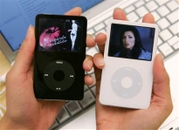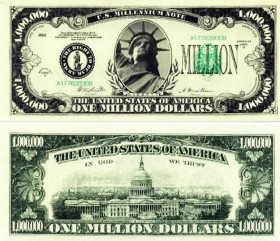Renewable Energy and Entertainers
continue reading article (and/or view comments)...
a lifelong student of technology, business, culture, for a secure future
O'Reilly, the technical book publisher has a feature called Roughcuts online. They publish books on new web programming, technology, and hardware. Roughcuts are like “beta” versions of books, similar to Google Labs which are their list of beta products. With Roughcuts, people who want to preview the book pay a fee for the pre-production PDF file, and then receive the hard copy when it is shipped.
Newspapers often post their printed articles a day or so before the printing, but now with books being released 'beta', it looks like the publishing world is changing in the near future to get feedback before releasing the book to the general public.

 Portable video for the masses essentially started with the release of Sony's PSP. When the PSP was released, there was wide skepticism about whether people would actually use the PsP for videos. A portable gaming system wasn't and shouldn't be everything to everyone, was the argument. And it had merit because PSP only played movies that were on its proprietary UMD discs. I know I won't buy $30 UMD discs just to watch a movie on my PSP that I can't play on my regular TV. Sony seemed to be a bit too early for the portable video market.
Portable video for the masses essentially started with the release of Sony's PSP. When the PSP was released, there was wide skepticism about whether people would actually use the PsP for videos. A portable gaming system wasn't and shouldn't be everything to everyone, was the argument. And it had merit because PSP only played movies that were on its proprietary UMD discs. I know I won't buy $30 UMD discs just to watch a movie on my PSP that I can't play on my regular TV. Sony seemed to be a bit too early for the portable video market.
Now, it seems like all the television networks are offering shows for download onto portable video devices. Once Apple released a video version of their iPod, the flood gates opened up.
 CBS, NBC, ESPN, ABC, Pixar, are all eager to repackage their programming to your iPod. Even Google, Microsoft, and Yahoo are getting into the game with their video search and download capabilities. Consumers weren't sure how useful cell phones with cameras were, and now that they're pretty much accepted that your new cell phone will have a camera, video on-demand for your cell is not far from the future.
CBS, NBC, ESPN, ABC, Pixar, are all eager to repackage their programming to your iPod. Even Google, Microsoft, and Yahoo are getting into the game with their video search and download capabilities. Consumers weren't sure how useful cell phones with cameras were, and now that they're pretty much accepted that your new cell phone will have a camera, video on-demand for your cell is not far from the future.
Some links in the past week about video on your ipod or cell phone:
 Steve Case, the AOL founder has started a new company called Revolution LLC to focus on the benefits in health care, living and resorts and the opportunity to invest in businesses that have a bright future. Revolution is a private holding company that Case is funding with $500 million of his estimated $825 million fortune and that will invest in health care, wellness, and resorts.
Steve Case, the AOL founder has started a new company called Revolution LLC to focus on the benefits in health care, living and resorts and the opportunity to invest in businesses that have a bright future. Revolution is a private holding company that Case is funding with $500 million of his estimated $825 million fortune and that will invest in health care, wellness, and resorts.
Case believes in the next two decades as aging baby boomers seek their comforts, they will move wellness and living into the mainstream; health care because when his older brother, Daniel Case III, was diagnosed with what proved to be a fatal brain cancer, he saw for himself just how difficult it is for even the privileged to make well-informed decisions about their care. He is interested in those that provide online data about the price and quality of doctors and those that make available electronic medical records; he's considering everything from high-end personalized health coaching services to clinics at retail stores like Target. As he says: "Health care is monumentally complex, confusing, inefficient, and inconvenient. Meanwhile it's the biggest industry in the country, and everybody hates it." The "wellness" business, a $400 billion industry that is expected to grow to $1 trillion by 2020, would be a natural complement to his interest in health care. He's clearly looking ahead and glad to see him going back to his entrepreneurial roots.Initially, Revolution will focus on three domains: resorts, living and health. However, the Revolution approach lends itself to many other sectors, and over time Revolution will expand its focus. Indeed, we have already acquired the rights to the Revolution name for more than 50 other domains, to maximize our flexibility, and to leverage the Revolution brand name across many sectors. But for now, we'll focus on resorts, living and health, as we believe each represents a multi-billion dollar opportunity.

Anybody with a bit of imagination, with a feel for the future, can construct a plausible scenario. Like this:
We should have seen it coming.
We were living beyond our means, saving absolutely nothing, spending more than we were earning -- like there was no tomorrow.
Most Americans were doing that. Worse, the government was doing it -- piling deficit upon deficit. And at the end of 2005, the total federal debt per U.S. household was more than $450,000.
But, as it always does, profligacy caught up with us. And the economy, which had been growing at a comfortable 3 to 4% rate for many years, came crashing down last year, in 2006.
If we think ahead and see how we are living beyond our means as a country, it's easy to see that at some point in the future, it will catch up with us.
Because it imported far more than it exported, the U.S. switched from being the world's largest creditor nation in 1981 to its largest debtor in 2005.
In that year, China held almost $200 billion of the U.S. debt, Japan held almost $700 billion, and even the OPEC countries held almost $50 billion.
That gave all of them tremendous power over the U.S. If they ever decided to dump some of their mountains of dollars -- either for pure economic reasons or out of political pique -- they could totally destabilize the U.S. economy.
Fears of just that kind of move caused foreign investors to pull part of their funds out of the U.S. investments, weakening markets here.
With all the media attention about consumer credit overextended, it may come as no surprise that 2006/7 will be the year for cautious spending and more saving. Let's hope this scenario above won't play out as bad as it can be.
Although net worth might be up among the emerging affluent, since they've been house rich but cash flow poor, it's going to be tight times ahead.
Slowing Is Seen in Housing Prices in Hot Markets - NY Times
Home Builders' Stock Sales: Diversifying or Bailing Out? - NY Times
Real Estate in Bubble Trouble - NY Post
Supply Hits High In Condo Craze - Washington Post
 CNN/Money released an article today about the number of households that are millionaires. Households with a net worth of at least $1 million excluding primary residences rose 8 percent to a record high 8.9 million. What I find interesting in this article is the mention of total income reported among millionaire households. They averaged $119,000. Among those households that drew some of their income from jobs, they earned an average of $82,000 in salaries or professional fees. The average age among the heads of these households was 56, and about 75 percent of them said they felt confident they will be financially prepared for retirement.
CNN/Money released an article today about the number of households that are millionaires. Households with a net worth of at least $1 million excluding primary residences rose 8 percent to a record high 8.9 million. What I find interesting in this article is the mention of total income reported among millionaire households. They averaged $119,000. Among those households that drew some of their income from jobs, they earned an average of $82,000 in salaries or professional fees. The average age among the heads of these households was 56, and about 75 percent of them said they felt confident they will be financially prepared for retirement.
$119,000 isn't that much relative to their net worth. If that's the case, this group (at least the median earners in this millionaire club), is living the Millionaire Next Door life. They're using good offence (income) and great defense (saving).
Of course there are others, who make $600,000 a year and are "struggling" to make ends meet. A Financial Times commentary on Aug 30, 05 has an article about a hedge fund manager who can barely make ends meet with his $600k income. Interesting views on a secure future: one group making $119k who are millionaires, and another making $600k and feel poor.
Looking ahead, there will be a huge focus on the 'emerging affluent' (households with a net worth between $100,000 and $500,000, excluding primary residences) and financial services geared to the younger Generation Y. Look for financial services companies to focus on them in the near future.